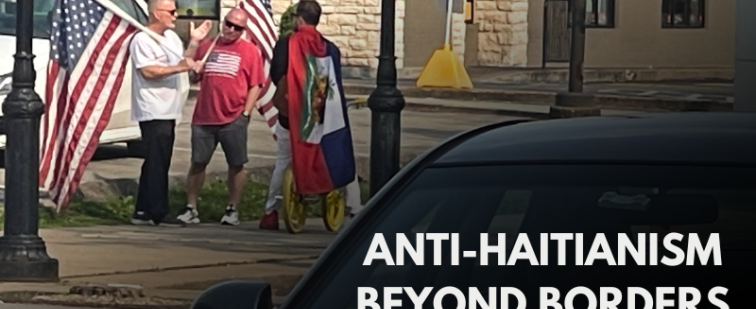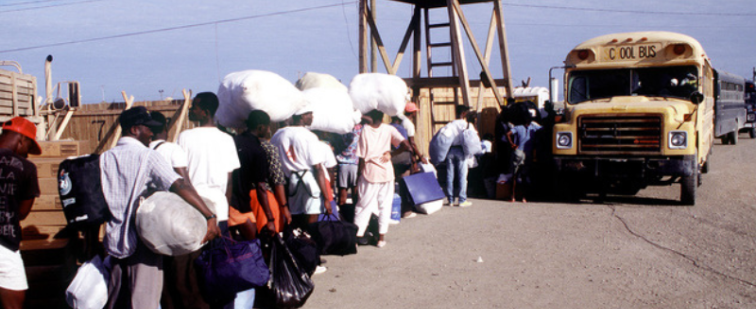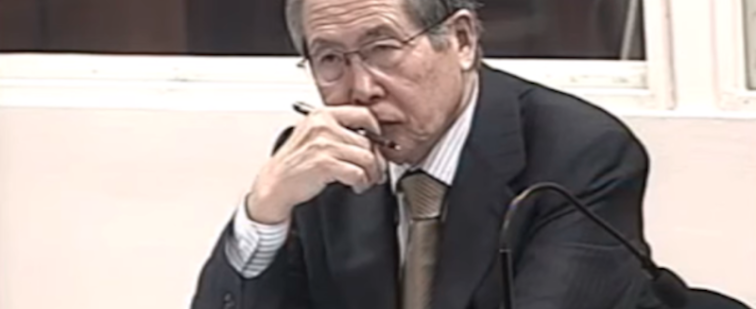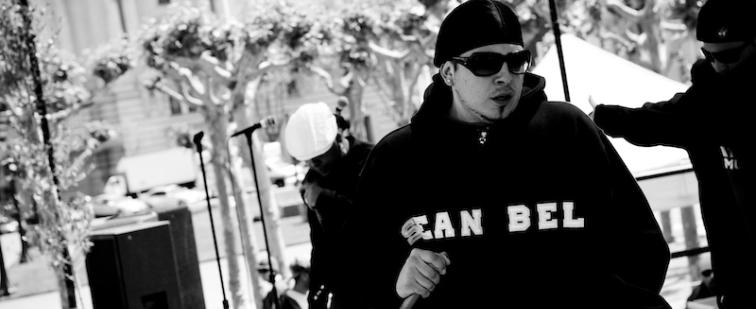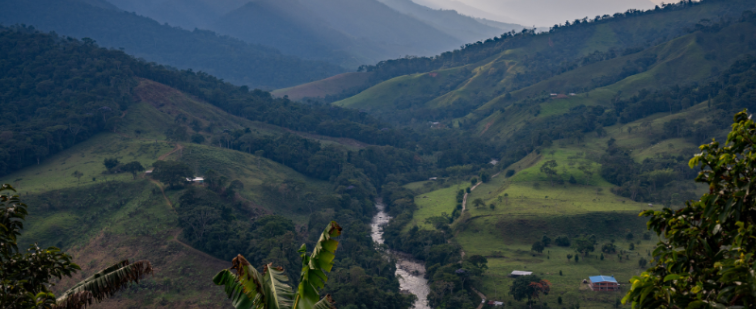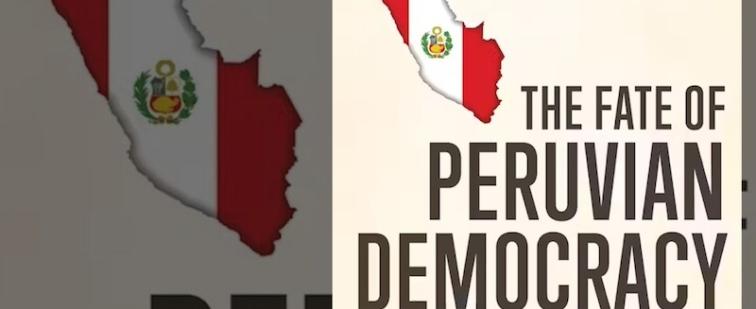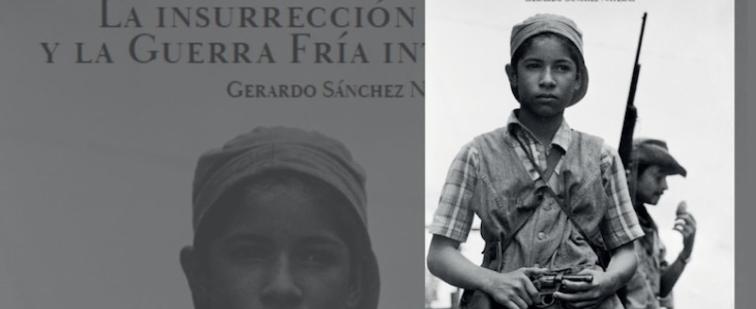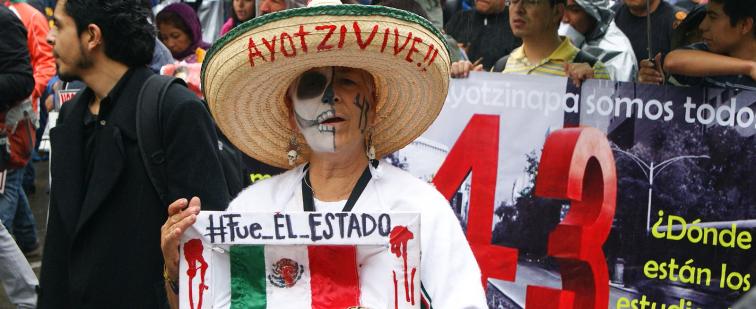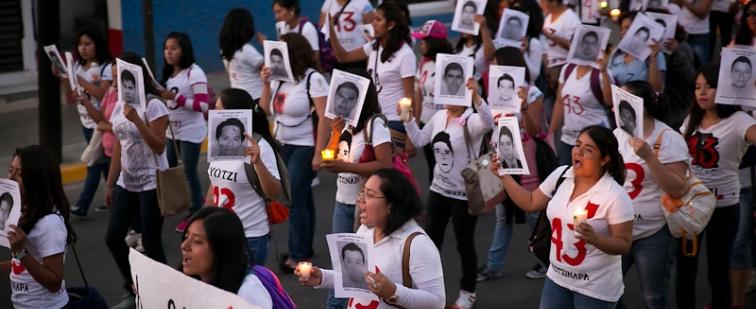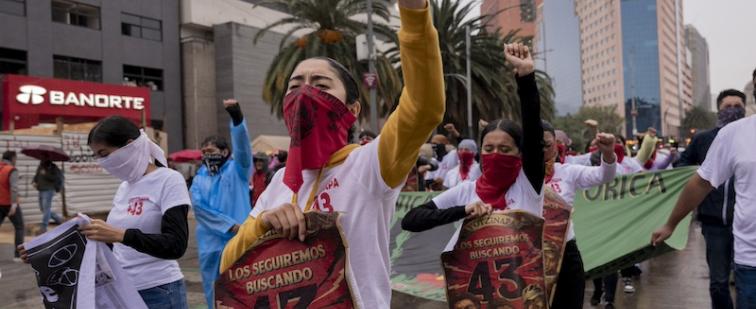Home
The Committee in Solidarity with the People of El Salvador (CISPES), illegally targeted in the 1980’s by the largest FBI Internal Security investigation of the Reagan era, has in recent months again received threatening communications from the U.S. Department of Justice. Citing the Foreign Agents Registration Act of 1938, a letter sent to CISPES in January questions the organization’s relationship with the leftist Salvadoran political party known as the Farabundo Marti Front for National Liberation, or FMLN. CISPES received similar inquiries in the 1980s which eventually led to an illegal FBI investigation into its activities.
The history of the armed conflict in Colombia is not only a history of war, but also one of missed opportunities for a negotiated solution. The recent cease-fire negotiation with the National Liberation Army (ELN) guerrilla group is a case in point. Initiated in the summer of 2005, the negotiations have reached a dead-end, and have lost momentum.
Editor's Note: The international human rights case charging eight Guatemalan former military and police officials with genocide, state terrorism, torture and other crimes began February 4 in Madrid. Kate Doyle, a senior analyst at the National Security Archive and director of their Guatemala Project, attended the closed hearings as part of the investigative and legal team working on the Guatemalan Genocide Case. This is the fifth and final installment of her five-part series on the opening days of the case, in which witnesses gave harrowing testimony on a period known in Guatemala as the “Silent Holocaust.”
Reflecting on Cuba’s Fidel Castro stepping down from power in February, U.S. newspapers relied on several worn-out themes and stereotypes that disparage Castro, gloss over U.S. aggression against Cuba, and idealize capitalism. News articles on Cuba often promote these themes and stereotypes through assumption, suggestion, and innuendo, blithely ignoring investigation, analysis, or evidence.
Sadly, the operation on March 1 in which the Colombian Armed Forces shot and killed Luis Edgar Devia Silva, a.k.a. “Raúl Reyes,” spokesman for the Revolutionary Armed Forces of Colombia (FARC), along with sixteen other guerrillas in a camp across the Putumayo River in Ecuador, was yet another case of the oft-mentioned “death foretold” that characterizes the country’s seemingly endless civil war.
Editor's Note: The international human rights case charging eight Guatemalan former military and police officials with genocide, state terrorism, torture and other crimes began February 4 in Madrid. Kate Doyle, a senior analyst at the National Security Archive and director of their Guatemala Project, attended the closed hearings as part of the investigative and legal team working on the Guatemalan Genocide Case. This is the fourth installment of her five-part series on the opening days of the case, in which witnesses gave harrowing testimony on a period known in Guatemala as the “Silent Holocaust.”
It's got millions of rightwing citizens calling Congress, sponsoring legislation, and writing manifestos in defense of U.S. sovereignty. It comes up in presidential candidates' public appearances, has made it into primetime debates, and one presidential candidate—Ron Paul—used it as a central theme of his (short-lived) campaign.
Not bad for a plan that doesn't exist.
Editor's Note: The international human rights case charging eight Guatemalan former military and police officials with genocide, state terrorism, torture and other crimes began February 4 in Madrid. Kate Doyle, a senior analyst at the National Security Archive and director of their Guatemala Project, attended the closed hearings as part of the investigative and legal team working on the Guatemalan Genocide Case. This is the third installment of her five-part series on the opening days of the case, in which witnesses gave harrowing testimony on a period known in Guatemala as the “Silent Holocaust.”
Most of the progressive governments of Latin America present a paradox for the social movements that make part of the World Social Forum (WSF) in that it is hard for them to stand up to presidents and government functionaries who once formed part of their struggles. “Experience shows that opposing center-left governments in the region is proving to be very difficult,” says sociologist Atilio Borón, who is in the International Council of the WSF. “It’s more complicated to confront friendly governments than enemy ones,” he warns.
Editor's Note: The international human rights case charging eight Guatemalan former military and police officials with genocide, state terrorism, torture and other crimes began February 4 in Madrid. Kate Doyle, a senior analyst at the National Security Archive and director of their Guatemala Project, attended the closed hearings as part of the investigative and legal team working on the Guatemalan Genocide Case. This is the second installment of her five-part series on the opening days of the case, in which witnesses gave harrowing testimony on a period known in Guatemala as the “Silent Holocaust.”

